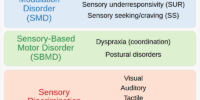When to Seek Marriage Counseling: Recognizing the Signs

Hey there,
Ever find yourself wondering about the state of your marriage? Maybe you're feeling some unease or dissatisfaction, but you're not quite sure if it's time to seek professional help. Well, guess what? You're not alone.
Plenty of couples go through moments of doubt and uncertainty in their relationship, wondering if they should take the leap and try out marriage counseling.
Let's dive into the signs that might indicate it's time to get some guidance and support for your marriage. Don't ignore those little nagging doubts just yet; there could be more to explore.
Cheers,
Key Takeaways
- Struggling to effectively communicate with your partner
- Frequent arguments escalating quickly
- Feeling lack of intimacy and emotional disconnection
- Trust is a fundamental pillar of successful relationships
Communication Breakdown
If you find yourself struggling to effectively communicate with your partner, it may be a sign that marriage counseling could be beneficial for both of you. Communication breakdown is a common issue that many couples face, and it can create significant challenges in a relationship. When communication breaks down, it becomes difficult to express your needs, concerns, and emotions, leading to misunderstandings and resentment. This can hinder the healing process and make it harder to rebuild trust.
Marriage counseling provides a safe and supportive environment for both partners to express themselves openly and honestly. A skilled therapist can help you identify the root causes of the communication breakdown and teach you effective communication techniques. They can also guide you through the healing process and assist in rebuilding trust and understanding.
In counseling sessions, you'll learn how to listen actively, validate each other's feelings, and express yourselves in a non-confrontational manner. The therapist will facilitate constructive dialogue and provide tools to improve communication outside of sessions. By addressing the communication breakdown head-on, you can begin the journey towards healing and strengthening your relationship.
Persistent Conflict
When persistent conflict arises in your relationship, it can be a clear indication that seeking marriage counseling may be beneficial for both you and your partner. Conflict is a normal part of any relationship, but when it becomes persistent and unresolved, it can erode the foundation of love and trust that holds you together.
Here are a few signs that persistent conflict may be impacting your relationship:
- Frequent arguments that escalate quickly and become emotionally charged
- Inability to resolve conflicts or reach compromises, leading to a cycle of unresolved issues
- Feeling stuck in negative patterns of communication and behavior, unable to move forward
Marriage counseling can provide a safe and supportive space for both partners to express their feelings, concerns, and needs. A skilled therapist can help you identify the underlying issues behind the conflict, heal wounds, and rebuild trust. Through effective communication techniques and problem-solving strategies, you can learn to navigate conflicts in a healthier way, fostering understanding and connection.
Emotional Disconnection

You may be feeling a lack of intimacy in your relationship, a sense of emotional disconnection that leaves you feeling alone and unheard.
Communication breakdowns may be more frequent, leading to misunderstandings and unresolved conflicts.
As time goes on, you may find yourselves growing apart emotionally, feeling like strangers in your own relationship.
Lack of Intimacy
Feeling emotionally disconnected from your partner can be a signal that it may be time to seek marriage counseling. Lack of intimacy is a common issue that many couples face, and it can have a significant impact on the overall health of a relationship.
Here are a few signs that may indicate a lack of intimacy in your marriage:
- Emotional distance: If you and your partner no longer feel connected on an emotional level, it can create a sense of distance and detachment.
- Physical dissatisfaction: When physical intimacy becomes infrequent or unsatisfying, it can lead to feelings of frustration and resentment.
- Lack of communication: A lack of open and honest communication can contribute to a sense of emotional disconnection and hinder the development of intimacy.
Communication Breakdown
If you find yourself emotionally disconnected from your partner, it may be a sign of a communication breakdown in your marriage. Feeling disconnected can be painful and can lead to feelings of loneliness and frustration. However, it's important to remember that you're not alone and there are steps you can take to improve your communication skills and rebuild trust in your relationship.
One key aspect of improving communication is active listening. This means truly hearing and understanding what your partner is saying, without interrupting or judging. It also involves expressing yourself honestly and openly, in a non-confrontational manner.
Building trust requires being reliable, keeping your promises, and being emotionally available for your partner. Seeking professional help through marriage counseling can be immensely beneficial. A trained therapist can provide guidance and teach you effective communication techniques. They can help you and your partner navigate through the emotional disconnection, rebuild trust, and strengthen your bond.
Growing Apart Emotionally
When emotional disconnection becomes apparent in a marriage, it can create a sense of growing apart and hinder the intimate bond between partners. It's important to recognize these signs early on and take steps to reconnect emotionally and rebuild trust. Here are some ways to navigate through this challenging phase:
- Open up and communicate: Express your feelings and concerns to your partner. Honest and open communication is key to rebuilding emotional connection.
- Spend quality time together: Make an effort to carve out time for each other. Engage in activities that you both enjoy and create opportunities for meaningful conversations.
- Seek professional help: Consider seeking marriage counseling to guide you through the process of reconnecting emotionally. A trained therapist can provide the necessary tools and strategies to rebuild trust and intimacy.
Lack of Intimacy

If you find yourself yearning for a deeper emotional connection with your partner, it may be a sign that lack of intimacy is affecting your relationship. Intimacy is a vital aspect of any healthy partnership, and when it's lacking, it can lead to feelings of loneliness, frustration, and even resentment.
But fear not, there are steps you can take to address this issue and rebuild the intimacy in your relationship. One effective way to start rebuilding intimacy is by engaging in intimacy building exercises. These exercises can help you and your partner reconnect on a deeper level and create a safe space for open and honest communication. Some examples of intimacy building exercises include sharing your hopes and dreams with each other, practicing active listening, or engaging in activities that you both enjoy.
It's also important to assess your relationship satisfaction levels. Take some time to reflect on how satisfied you feel in your relationship and identify areas where you may be lacking intimacy. By being aware of these areas, you can then work together with your partner to find ways to improve them.
Trust Issues
Trust is a fundamental pillar of any successful relationship, and if you're experiencing trust issues, it's important to address them in order to restore the foundation of trust in your partnership. Rebuilding trust takes time and effort, but it's absolutely possible.
Here are three steps that can help you rebuild trust and intimacy in your relationship:
- Open and honest communication: Start by creating a safe space for open and honest conversations. Express your feelings and concerns without judgment or blame. Listen actively to your partner and try to understand their perspective. Effective communication is crucial in rebuilding trust and fostering intimacy.
- Consistency and reliability: Rebuilding trust requires consistent actions over time. Be reliable and follow through on your commitments. Show your partner that they can depend on you. By demonstrating consistency, you can gradually rebuild their trust in you.
- Seek professional help: Sometimes, trust issues can be deeply rooted and may require the guidance of a marriage counselor or therapist. A professional can provide a neutral and supportive environment where both partners can explore their feelings, address underlying issues, and learn effective communication and trust-building strategies.
Remember that rebuilding trust and intimacy takes patience and understanding. It's a journey that requires both partners to be committed and willing to work on the relationship. With time and effort, you can rebuild trust and create a stronger, more intimate bond with your partner.
Infidelity

If your relationship has been affected by trust issues, such as infidelity, it's crucial to address this difficult situation in order to rebuild the foundation of trust and move forward together. Infidelity can be incredibly painful and damaging to a relationship, but it doesn't have to be the end. Rebuilding trust after infidelity is possible with time, effort, and professional guidance.
The healing process after infidelity can be challenging, but it isn't impossible. It requires both partners to be committed to repairing the damage and working towards a healthier future. Seeking marriage counseling can provide a safe space to explore the underlying issues that led to the infidelity and to communicate openly and honestly.
During counseling sessions, you and your partner will have the opportunity to express your feelings and concerns, as well as to learn new strategies for rebuilding trust. The therapist can help you navigate the complex emotions that arise from the betrayal and guide you towards forgiveness and healing.
Rebuilding trust takes time and patience. It involves a willingness to be open and vulnerable, and a commitment to rebuilding the relationship on a stronger foundation. With the support and guidance of a skilled marriage counselor, you can work together to heal from the pain of infidelity and create a future filled with trust, love, and mutual respect.
Unresolved Past Trauma
Addressing unresolved past trauma is a crucial step towards healing and strengthening your relationship. Unresolved trauma can have a significant impact on your emotional well-being and can create barriers in your connection with your partner. It's important to recognize the signs and seek professional guidance to navigate the healing process together.
Here are three key points to consider:
- Acknowledging the impact: Unresolved past trauma can manifest in various ways, such as emotional withdrawal, difficulty in trusting, or frequent conflicts. Recognizing how your past experiences affect your current relationship is the first step towards healing.
- Creating a safe space: Open and honest communication is essential when addressing past trauma. Create a safe and non-judgmental environment where both you and your partner can share your experiences and emotions without fear of rejection or criticism.
- Seeking professional guidance: Healing from past trauma can be a complex journey that requires specialized support. Marriage counseling can provide a safe space for both partners to explore their emotions, understand the impact of trauma, and learn healthy coping mechanisms.
Frequently Asked Questions
Can Marriage Counseling Help if Our Communication Breakdown Is Due to One Partner's Reluctance to Open Up?
Marriage counseling can help you overcome reluctance and improve communication. By creating a safe space and providing guidance, a counselor can support you in opening up and fostering healthier dialogue in your relationship.
How Can We Differentiate Between Normal Conflicts and Persistent Conflicts That Require Professional Intervention?
When conflicts persist and start affecting your daily life and relationship, it may be time to seek professional help. Differentiating between normal conflicts and persistent ones is crucial for ensuring a healthy and happy marriage.
Is Emotional Disconnection a Sign That Our Marriage Is Beyond Repair, or Can It Still Be Fixed Through Counseling?
Emotional disconnection doesn't necessarily mean your marriage is beyond repair. Through counseling, you can work on repairing your relationship and reestablishing that emotional connection you both desire.
What Are Some Common Signs of Lack of Intimacy in a Marriage, and How Can Counseling Address These Issues?
Feeling distant and disconnected, lacking emotional connection with your partner? Counseling can help rebuild trust after infidelity and address the common signs of intimacy loss, bringing you closer and strengthening your bond.
Can Marriage Counseling Help Rebuild Trust After One Partner Has Broken It Through Infidelity?
Marriage counseling can definitely help you rebuild trust and heal after infidelity. It provides a safe space to address the betrayal, explore emotions, and learn effective communication and coping strategies for moving forward together.










